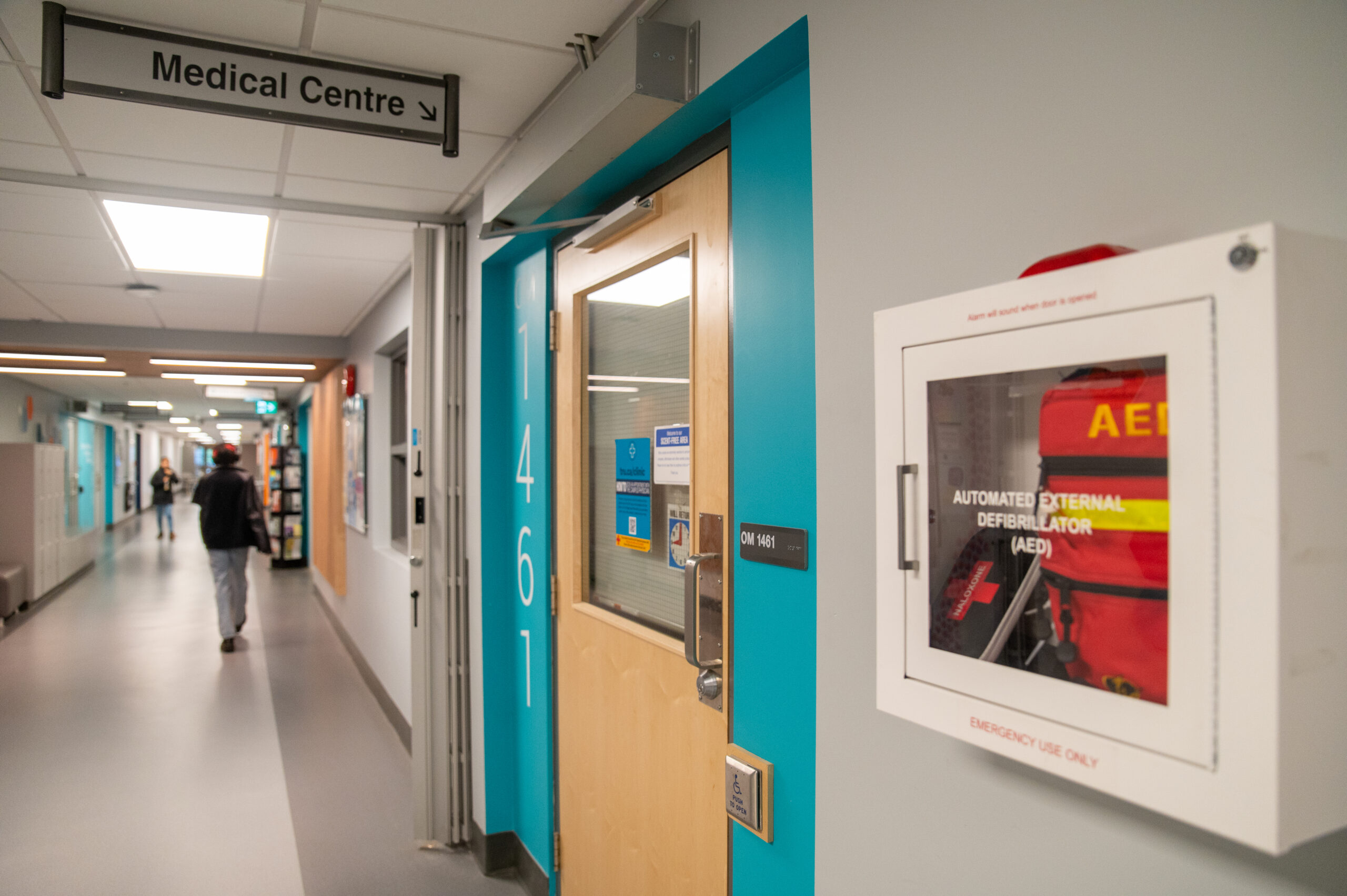As the weather cools and flu season draws near, students across TRU are bracing for the onset of respiratory illnesses. While access to healthcare resources is crucial, many students feel their options are severely limited.
Samuel Weir, a second-year Journalism student, has grown disillusioned with Kamloops’ healthcare system. “Because of how long it takes to get an appointment, people just work through it themselves,” he said. “I know a couple of people who are sick right now and aren’t going to see a doctor.”
Canada’s recent healthcare struggles are evident in Kamloops, where several clinics have closed in recent years. The remaining options—urgent care centers and the Royal Inland Hospital’s emergency room—come with significant inconveniences.
“With the urgent care centers, you have to call for an appointment and keep calling until you get one,” said Tamera Chimusaru, a second-year communications student. “I’ve never gotten one—it’s a struggle. So, if I’m sick, I just tough it out until it feels like I’m dying, and then I go to the emergency room.”
For international student Aibiike Alymova, the emergency room isn’t much better. “When you go into the ER, a nurse checks on you and qualifies what kind of pain you’re in,” she explained. “Then, you’re distributed based on zones and colours. That’s what decides whether you see a doctor that day.”
“It makes sense,” Weir said. “If somebody’s leg is bent in the opposite direction, or if they have an appointment to treat a cancer, they should get the first bit of care. But there have been cases of people waiting in the ER all day without getting any care. It’s just awful right now.”
Despite the challenges, many students seem unaware of or reluctant to explore the on-campus medical facility at Old Main.
The TRU Medical Clinic, now in its 25th year, offers routine medical support to students during the academic year. Open Monday to Friday and conveniently located within the campus, it seems ideal for students’ health needs.
Lee-Gaye Hicketts, the medical office assistant who has been with the clinic since its inception, believes it’s a vital and well-used university resource. “People are aware of [the clinic],” she said. “We probably wouldn’t have such a long waitlist otherwise.”
This long waitlist is precisely the concern for many students. “It’s a little inconvenient that I have to have an appointment,” said Chimusaru, who struggles with frequent allergic reactions. “Any medical attention I have ever needed is pretty urgent, and I honestly don’t want to wait—I’m trying to get in immediately.”
Hicketts acknowledges this frustration. “People want everything immediately,” she said. “And it doesn’t work that way, unfortunately. Our wait times are from seven days to two weeks, and I feel bad when students have to wait, but there are thousands of people on campus at any given time.”
She continued, “Regular clinics don’t take new patients across a certain limit. We can’t say, ‘Oh, there are too many students; we won’t see any more.’ That’s the part people don’t realize.”
Other students say they were completely unaware of the clinic or its services. “I actually didn’t know you could get prescriptions or anything like that on campus,” Weir noted. “That hasn’t been something they’ve advertised. They’ve advertised more of our mental health facilities, like the Wellness Center.”
“Someone once asked if they could go to the Wellness Center for some Tylenol,” Alymova said. “And, I don’t think the Wellness Center offers things like that. People tend to assume other facilities handle what the medical clinic is supposed to.”
The clinic addresses routine health issues, such as prescriptions, physical examinations, flu and illness care, and allergy injections.
To alleviate wait times, the clinic offers alternate options. “For students who don’t want to wait, we have information about virtual platforms on our website,” Hicketts said. “There are also things you no longer need to see a doctor for; you can go to a pharmacist for birth control or bladder infections. We also work with a women’s clinic in town where we send our overflow female patients.”
As students navigate academic life, it is important to prioritize their physical health. The TRU medical clinic is available to address various medical needs, from flu care to sexual health services.
To learn more about the clinic, visit Old Main 1461, email them at trumedicalclinic@tru.ca, or visit their website at https://www.tru.ca/current/wellness/clinic.html.

